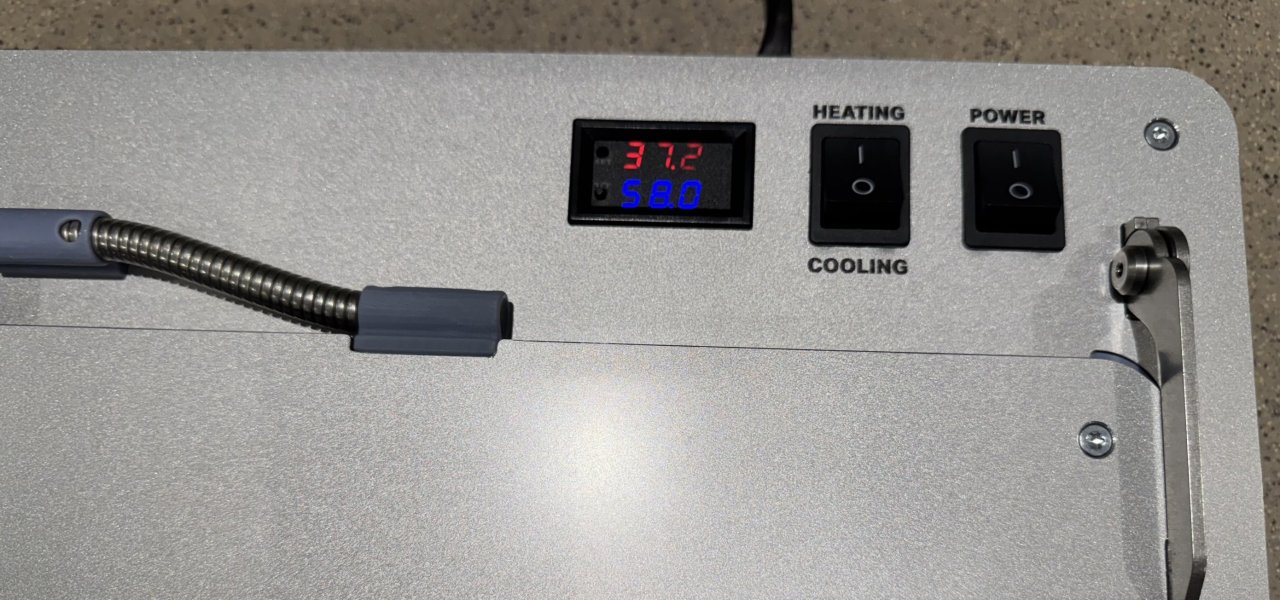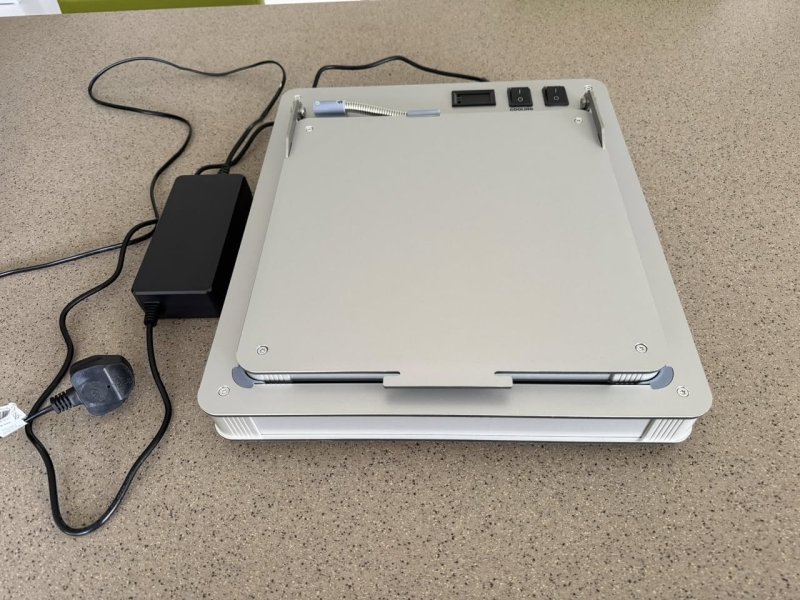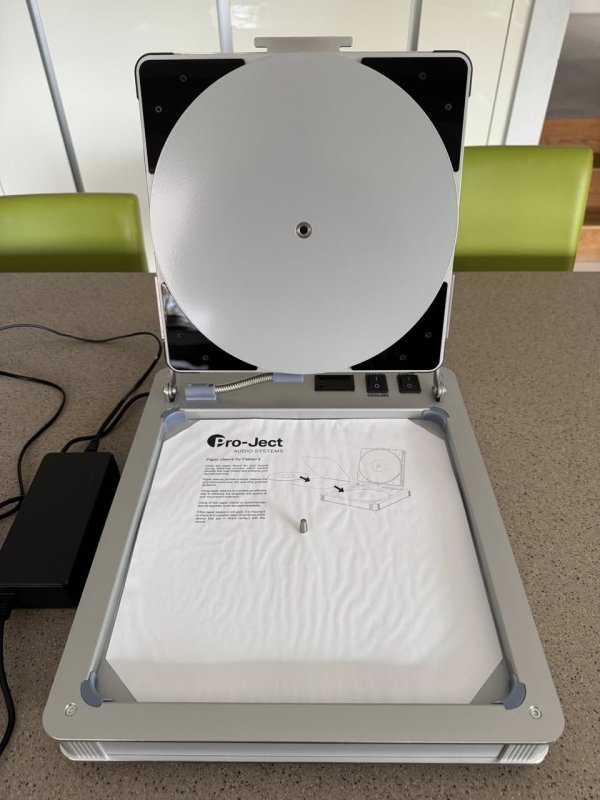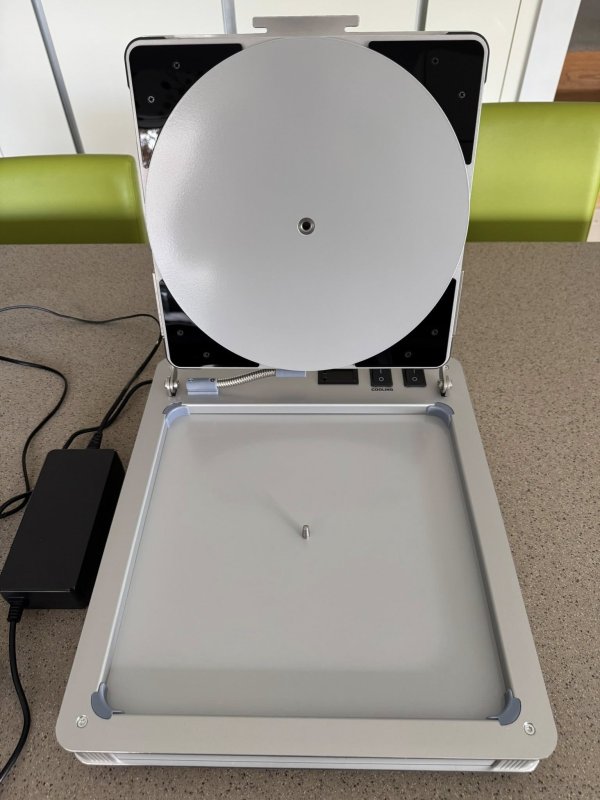After a long wait, supplies of the Pro-Ject Flatten-It vinyl record press have now reached the UK.
Priced competitively, compared to the quality competition, offered by another German manufacturer, AFI, who’s Flat Duo sells for £3,495 and the Japanese Orb Df-O1ia at £1,349.
At doesn’t seem to have any UK representation, so add VAT and import duties on top. The Orb is available from UK retailers such Analogue Seduction.
There are a couple of other cheaper alternatives for taking the warps out of vinyl records, such as the American Record Pi System, priced at £213, but again, add import fees from the US, plus a step-up transformer for UK use.
Another budget solution from the USA, is the Vinyl Flat Record Flattener, with its “Groovy” pouch, priced at 216 US Dollars. Import duties plus transformer to allow it’s use with UK 240v mains, apply.
Back to the Pro-Ject Flatten-It. UK distribution through Henley Designs. UK model, designed to be used with UK mains out of the box. Extremely well constructed and finished, with simple instructions for use and priced at £749.
I followed the set-up instructions and allowed the machine to cycle through it’s first heating/cooling phase, without a record, to check that the temperature stabilised at between 56-58 Celsius and did not exceed 60 degrees, indicating possible damage in transit.
The machine has an On/Off switch and a Heating /Cooling switch. The manual advised cleaning any warped record first (so into my Degritter MKII they went), allow to thoroughly dry and insert into the paper sleeve supplied, before closing the lid and switching the machine to Heating mode.
After an hour, the temperature stabilises around 58 degrees Celsius and the complete cycle with a 180g vinyl record will require two hours of heating, followed by switching to Cooling and allowing the temperature to slowly fall to around 30 degrees, before removing the vinyl record from the machine.
The manual does advise, that thinner records may require a longer heating period.
I’ve got my first vinyl record (a rather warped side1/2 of a double album “Songs In The Key Of Life” on heavyweight vinyl) “cooking” now, so I’ll report back when done!
I appreciate that this machine is not for everyone, but may be of interest to those vinyl enthusiasts among us with substantial collections, including difficult to play, warped records.
For me, the frustrating issue is buying new these days and, in the past, having to return severely warped pressings.
Priced competitively, compared to the quality competition, offered by another German manufacturer, AFI, who’s Flat Duo sells for £3,495 and the Japanese Orb Df-O1ia at £1,349.
At doesn’t seem to have any UK representation, so add VAT and import duties on top. The Orb is available from UK retailers such Analogue Seduction.
There are a couple of other cheaper alternatives for taking the warps out of vinyl records, such as the American Record Pi System, priced at £213, but again, add import fees from the US, plus a step-up transformer for UK use.
Another budget solution from the USA, is the Vinyl Flat Record Flattener, with its “Groovy” pouch, priced at 216 US Dollars. Import duties plus transformer to allow it’s use with UK 240v mains, apply.
Back to the Pro-Ject Flatten-It. UK distribution through Henley Designs. UK model, designed to be used with UK mains out of the box. Extremely well constructed and finished, with simple instructions for use and priced at £749.
I followed the set-up instructions and allowed the machine to cycle through it’s first heating/cooling phase, without a record, to check that the temperature stabilised at between 56-58 Celsius and did not exceed 60 degrees, indicating possible damage in transit.
The machine has an On/Off switch and a Heating /Cooling switch. The manual advised cleaning any warped record first (so into my Degritter MKII they went), allow to thoroughly dry and insert into the paper sleeve supplied, before closing the lid and switching the machine to Heating mode.
After an hour, the temperature stabilises around 58 degrees Celsius and the complete cycle with a 180g vinyl record will require two hours of heating, followed by switching to Cooling and allowing the temperature to slowly fall to around 30 degrees, before removing the vinyl record from the machine.
The manual does advise, that thinner records may require a longer heating period.
I’ve got my first vinyl record (a rather warped side1/2 of a double album “Songs In The Key Of Life” on heavyweight vinyl) “cooking” now, so I’ll report back when done!
I appreciate that this machine is not for everyone, but may be of interest to those vinyl enthusiasts among us with substantial collections, including difficult to play, warped records.
For me, the frustrating issue is buying new these days and, in the past, having to return severely warped pressings.












